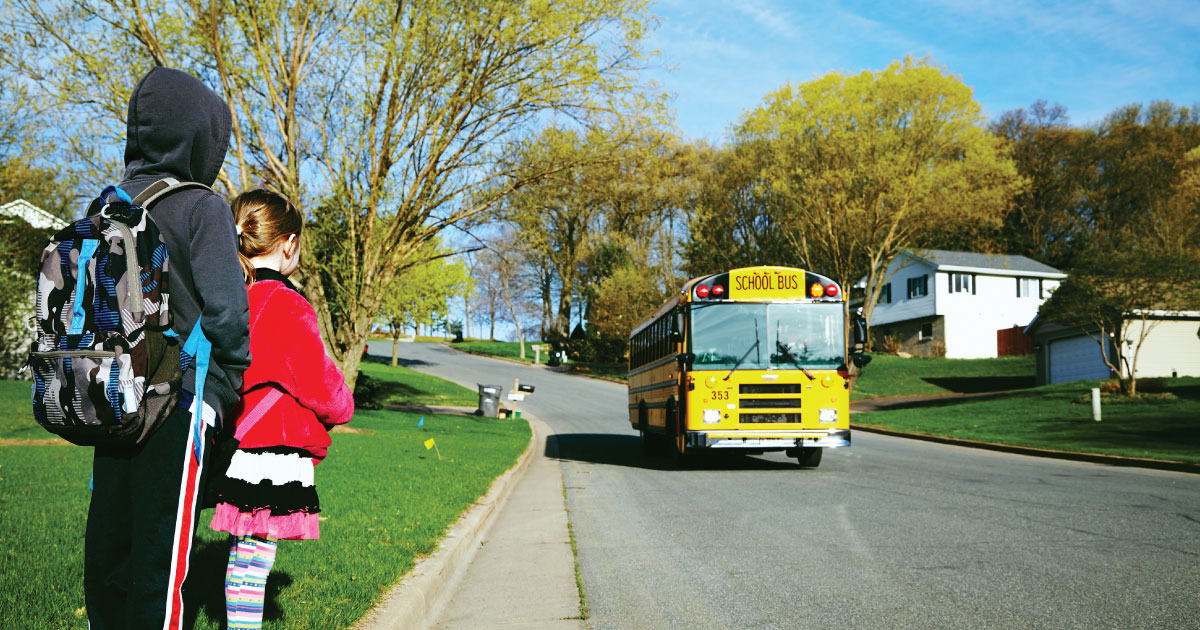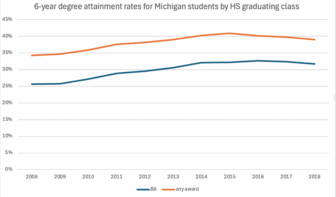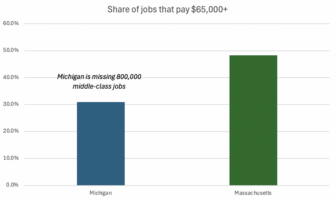![]() Readers of our latest report know that we very much agree with Robert Putnam’s framing, in his book Our Kids, of the basic economic division in American now being class, where class is increasingly defined by college attainment. That top quartile families––most with at least one adult with a four-year degree or more––are doing well economically. While way too many of the bottom 75 percent––most in households without an adult with a four-year degree or more––have been, for decades, experiencing stagnant or declining living standards.
Readers of our latest report know that we very much agree with Robert Putnam’s framing, in his book Our Kids, of the basic economic division in American now being class, where class is increasingly defined by college attainment. That top quartile families––most with at least one adult with a four-year degree or more––are doing well economically. While way too many of the bottom 75 percent––most in households without an adult with a four-year degree or more––have been, for decades, experiencing stagnant or declining living standards.
Putnam provides compelling data that this division has substantially reduced economic mobility for American kids. That increasingly those growing up in the bottom three quartiles are unable to rise into the top quartile. Many end up doing worse than their parents.
Putnam argues that there are two forces that are increasingly contributing to an American caste system, where one’s economic well-being is largely determined by your parents economic well being. One is, more and more, of the economic growth going to those at the top. The other is the top quartile increasingly segregating themselves from everyone else. That there are real negative consequences from increasingly concentrated affluence, just as there is from concentrated poverty.
In a recent New York Times column entitled How We Are Ruining America, David Brooks deals with this topic. The column includes reviews of two books written about the topic: Dream Hoarders by Richard Reeves and The Sum of Small Things by Elizabeth Currid-Halkett. All worth checking out.
Brooks explores a number of ways in which the affluent are making sure that their kids do better than other’s kids. In this post I want to focus on education––more broadly human capital development––as the primary vehicle for accelerating an American caste system.
As Brooks notes affluent families from the day their children are born are insuring that their kids are well educated, in a world where college attainment has become, by far, the most reliable path to a good-paying forty-year career. He writes:
Over the past few decades, upper-middle-class Americans have embraced behavior codes that put cultivating successful children at the center of life. As soon as they get money, they turn it into investments in their kids.
…. Upper-middle-class parents have the means to spend two to three times more time with their preschool children than less affluent parents. Since 1996, education expenditures among the affluent have increased by almost 300 percent, while education spending among every other group is basically flat.
So the affluent are spending more and more money on their kids education while far too many of them support candidates who have made lower taxes a priority at the expense of public investment in education from birth through college of other’s kids.
To make matters worse far too many of the affluent have decided other’s kids don’t need to go to college. As we explored in my last post far too many of them are pushing narrow occupation-specific training for other’s kids rather than an education that builds broad, rigorous, college prep skills in all kids.
The result is that we increasingly have an education system from birth through college that is designed and executed differently for affluent kids than it is for non-affluent kids. One system well funded and delivering a broad college prep (dare we say liberal arts) education, the other underfunded and delivering an increasingly narrow education built around developing discipline and what is on the test or to narrowly preparing non-affluent children for a first job.
If we want to live up to the core American value of equal opportunity for all this must change.







